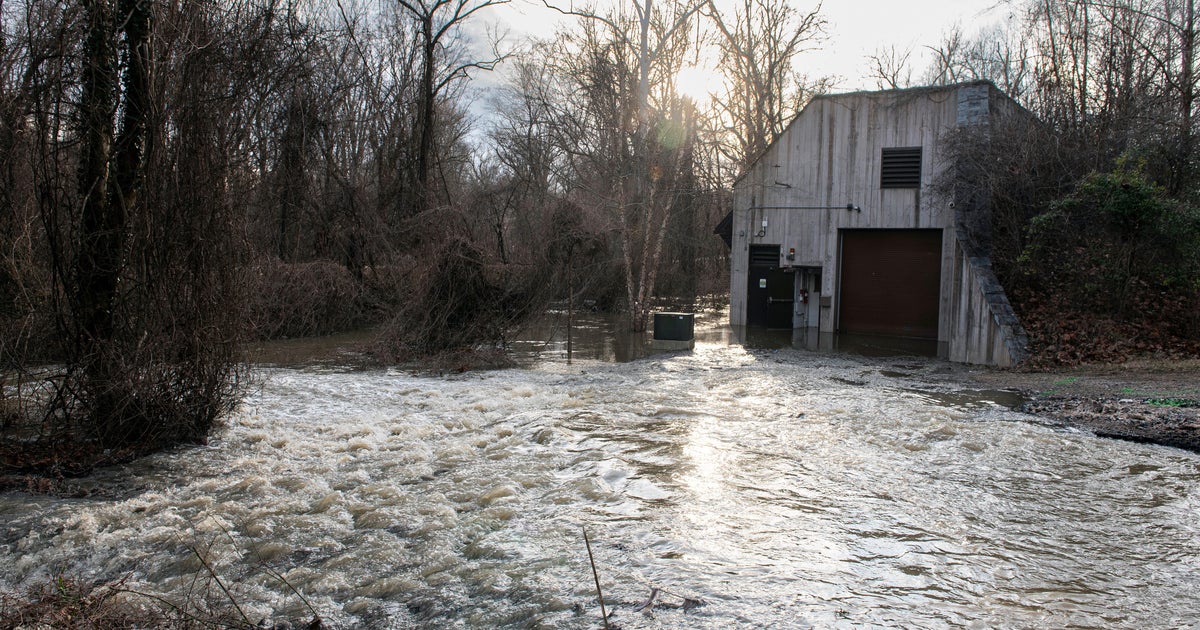FPL Gets Okay For Natural Gas Plan
Follow CBSMIAMI.COM: Facebook | Twitter
TALLAHASSEE (CBSMiami/NSF) - Florida's largest power company can now get in the natural-gas production business with its customers' money.
But it won't be able to use money from those same ratepayers to advocate against new federal clean-water rules.
Juno Beach-based Florida Power & Light won permission from state utility regulators Thursday to sign a 30-year contract with Louisiana-based PetroQuest to conduct exploratory drilling for natural gas in southeastern Oklahoma, with the $191 million cost spread to customer bills.
The deal, approved in a 4-1 vote by the state Public Service Commission, will make FPL the first regulated power company to engage in such energy production.
"This is an innovative project," Public Service Commission member Julie Brown said. "And let's face the reality here, we're becoming more and more dependent … on natural gas. And we will only continue to become more dependent on natural gas in the future."
Regulators and FPL officials were quick to claim customers should see cost savings from the investment.
However, the commission delayed until March a request by FPL to set guidelines for additional production projects, which could raise production costs to about a $750 million year.
Despite the upfront costs, Commissioner Eduardo Balbis said the proposal to drill for shale gas in Oklahoma should be a "windfall" for FPL customers.
"These are proven reserves, it's just arguing how much of a savings there will be," said Balbis, who is leaving office at the end of the year. "Day one, customers are going to see lower bills."
FPL has claimed the work will save customers $51.9 million through the life of the contract, as they would be paying for the production of the gas rather than paying an outside driller.
PSC staff estimated a 16-cent decrease in the monthly bill of a residential customer who uses 1,000 kilowatt hours of electricity, starting in 2016. Only commission Chairman Art Graham voted against the plan.
The power company currently spends about $3 billion a year to purchase natural gas, which accounts for about two-thirds of the fuel used by the company.
Susan Glickman, Florida director for the Southern Alliance for Clean Energy, called the approval "bad policy."
"FPL customers should be outraged at the company's overreach and concerned that the PSC, the agency charged with balancing the interest of the public with desires of monopoly utilities, approved the speculative out-of-state deal," Glickman said in a release after the meeting.
The Office of Public Counsel, which is charged with representing consumers in utility cases, called the venture a "financial risk" for ratepayers that will garner a positive yield for shareholders, "regardless of the success of the venture."
The proposal was opposed by groups such as the Sierra Club of Florida, which sent a letter to the commission Wednesday pushing for energy sources free of fossil fuels while arguing against allowing FPL to enter "into a high-risk natural gas exploration at the expense of ratepayers."
"The proposed project by FPL is a speculative investment at best," a Sierra Club release from Staff Director Frank Jackalone said. "At worst, FPL customers could wind up footing the bill for an expensive project that will yield nothing, similar to Duke Energy customers who paid for a nuclear power plant that was never built."
Commissioners were emphatic the approval does not allow or expand "fracking" in Florida.
Fracking, formally called hydraulic fracturing, is a controversial process that involves injecting water, sand and chemicals underground to create fractures in rock formations, which allows the release of natural gas and oil.
Also Thursday, commissioner accepted a staff recommendation to reject FPL's request to use ratepayers' money to lobby against new federal clean-water rules.
FPL had sought to use $228,500 for a fight against the proposed "Water of the United States" rules, which revise definitions within the Clean Water Act.
"While it's commendable that FPL wants to limit rate impacts from the proposed regulations, the Environmental Protection Agency rules are not final, and FPL is not incurring any required compliance costs," Graham said in a prepared statement.
The federal water-designation changes --- published in April --- have been devised by the Environmental Protection Agency and the U.S. Army Corps of Engineers.
FPL has claimed that the "overreaching" changes would result in an increase in regulations over wetlands and water bodies, and would impact current facilities and future electric utility projects.
The News Service of Florida's Jim Turner contributed to this report.
RELATED CONTENT:







